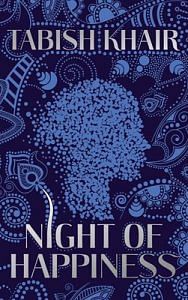After 9/11, everyone’s world has changed. Over the last forty years, life has become far more difficult for the liberal, sensitive Muslim whose interests include innocuous subjects like accounting and finance.
In 1979, I shared a home with a pious Sunni Muslim colleague. He was a very sound accountant and I’d always defer to him on matters regarding amortization of goodwill, tax accounting and so on. And then one day, the Khomeini Revolution happened in Iran. I started noticing the acute discomfort that my friend felt in discussing anything to do with the new Islam and the emerging new world. Over the last forty years, life has become far more difficult for the liberal, sensitive Muslim whose interests include innocuous subjects like accounting and finance.
After 9/11, everyone’s world has changed. But the change felt by the liberal Muslim is poignant and tragic. He or she is given gut-wrenching choices. Become puritanical and ultra-conservative wearing your faith on your sleeve—that’s one choice which will get you into a comfort zone with many of your compatriots. Abandon all connection with the faith and culture of your ancestors—become an outsider and a critic—that’s one choice that will get you popularity with your non-Muslim friends and acquaintances. And then there is the whole issue of physical fear. Because some distant co-religionists of yours may have thrown bombs or burned vehicles, you can now be at the receiving end of violence in civil wars, in riots and from drones. Your subjective agency is lost. You are now an object fitted into a category.
Tabish Khair’s protagonist in Night of Happiness, Ahmed is a gentle, efficient, courteous linguist, accountant, tour guide and commercial executive. He is a liberal Muslim without being self-consciously or aggressively so. And for sure, he is besieged from both sides. Ahmed and his mother are the victims of a new-found puritanism among his fellow Muslims. This is an important point that Khair makes. There is nothing old or venerable about the misogynist and sometimes anti-human ideas that the powerful fanatics of today are imposing on fellow Muslims. In fact, they seem to derive inspiration from the dogmatic intimidation advocated by the Nietzsches and Maos of the world. It is this modern fanatical Islam which drives Ahmed and his mother away from their neighborhood. Ahmed has learned languages other than Arabic and Urdu. He has made acquaintance with people from many countries. He is a good tour guide. But it doesn’t make him any less a Muslim. He just chooses to celebrate only one of Islam’s many festivals with a rare gusto. Ahmed moves into the globalized world of “export-import” and again his skills and aptitude are impressive. Can you be a good Muslim and a good import-export executive at the same time? What a silly question to ask. Nevertheless, this question remains a haunting undercurrent throughout the novel.
And then there is the sense of siege. Ahmed’s wife is of an ambivalent background, but ironically given to more fastidious Islamic adherence than one would expect. She is a victim of a siege and an attack. She dies in a chilling, matter of fact manner during a riot. Ahmed handles his loss, grief, and encounter with the sheer meaninglessness of it all—with superb aplomb. He creates a world where he dwells with sanity, gentleness, love and level of intellectual and emotional sophistication which is stunning.
Read the book and next time you run into a liberal Muslim, I hope you feel an empathy which we as humans owe to others of our kind trapped in a predicament that resembles a ghostly galleon.
Jaithirth Rao lives in Mumbai. He is an entrepreneur and a writer.
Tabish Khair is an associate professor in the Department of English, University of Aarhus in Denmark. His authored book “Night of Happiness” has been published by Picador India, an imprint of Pan Macmillan.




